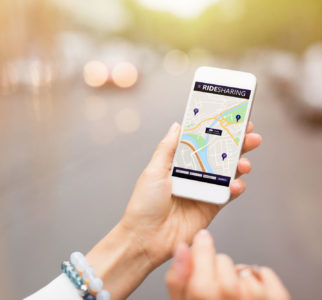 Medical costs continue to be deferred onto the patient, whether its in the form of rising insurance premiums or higher costs of services. When patients need medical services, sometimes there’s not much they can do to avoid a hefty bill. However, Uber is trying to help save patients money by greatly reducing the cost associated with getting to the hospital by launching a ride-hailing service called Uber Health.
Medical costs continue to be deferred onto the patient, whether its in the form of rising insurance premiums or higher costs of services. When patients need medical services, sometimes there’s not much they can do to avoid a hefty bill. However, Uber is trying to help save patients money by greatly reducing the cost associated with getting to the hospital by launching a ride-hailing service called Uber Health.
Uber Health operates just like their main app Uber, which provides individuals with the ability to hail a vehicle to transport them from one place to another. Uber Health will have a very similar function, except it will be designed to take people to and from doctor’s appointments, or in some situations, to the hospital in the event they require care.
For individuals who have regular rehabilitation appointments or regular doctor’s office visits, it can be difficult to find consistent transportation if they are unable to get themselves to these appointments. Some care centers offer ridesharing options, but they can get expensive and aren’t always the most reliable. Uber Health is hoping to address both of these points by providing a low-cost, on-demand ride-hailing service.
How It Works
Rather than operating through the Uber app, Uber Health functions slightly differently in order to abide by HIPAA regulations. Patients can still order a ride using their phones, but they can also have participating physicians’ offices schedule pickups or drop offs for the patient, and these appointments can be booked up to 30 days in advance. Riders will receive information about their ride in the form of a text message, while the drivers will still locate and pick up riders using the standard Uber app. By following these steps, Uber Health says it abides by all privacy laws outlined in HIPAA.
Nearly 100 healthcare facilities across the nation participated in the Uber Health test program, and Uber plans to roll out the service to more facilities in the near future. They also plan on implementing an option for riders to receive trip details over the phone, in case a landline is their preferred method of communication.
Uber has become a popular transportation method for individuals who want to avoid the pricey cost of an ambulance in certain situations where medical attention is necessary, but it’s not a medical emergency. For example, we’ve heard stories of runners who have broken their ankle while running and used Uber to get a ride to a nearby emergency room. Uber Health hopes to cut into these transportation costs, although but Uber and Uber Health have made it clear that their service is not intended to replace professional transportation services in the event of a true medical emergency.
This truly is an innovative means of delivering health care to the patient, and delivering the patient to a health care facility! This has enormous potential, and HIPAA concerns will only get easier to avoid when driverless cars become more popular. We can wait to see where this goes in the future.